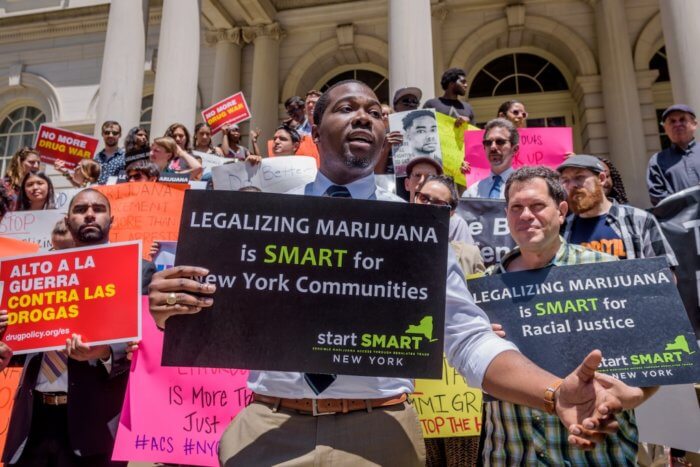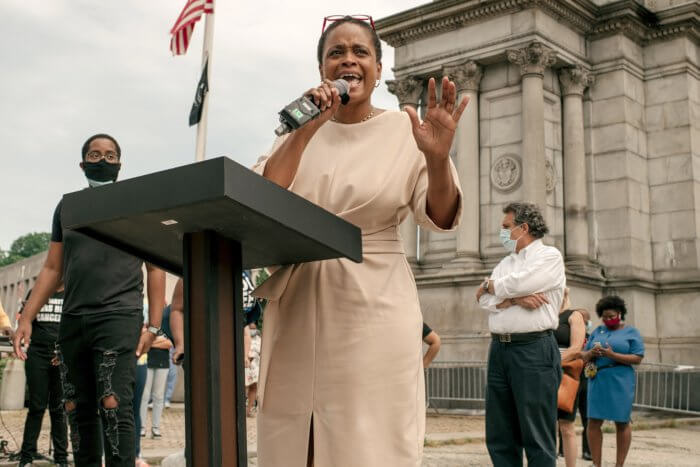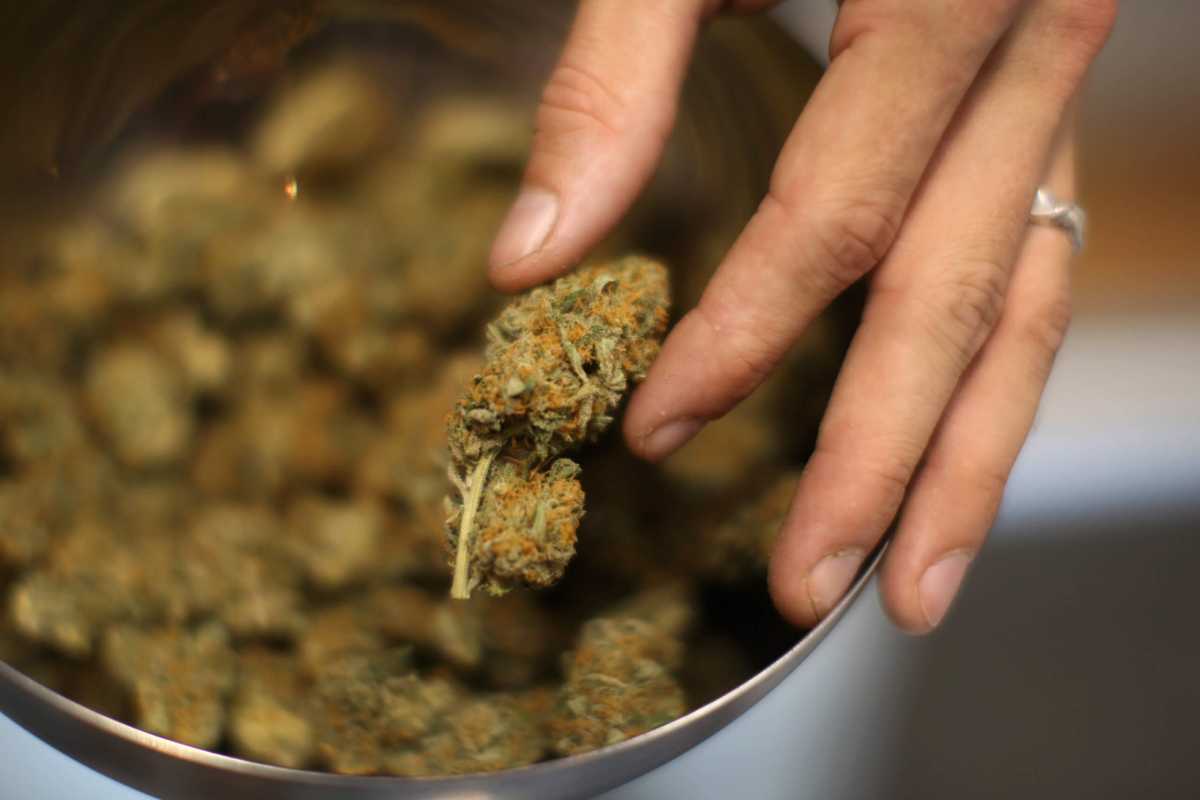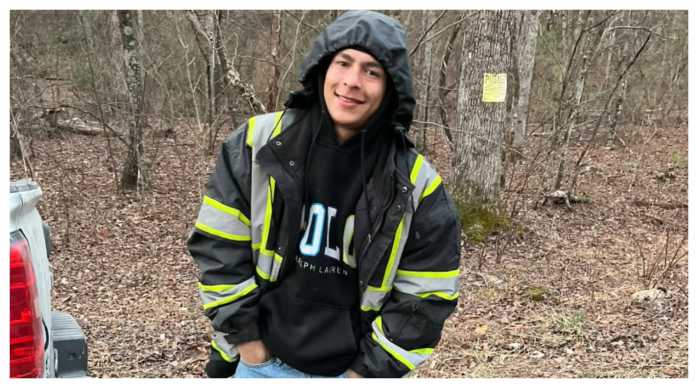This is Part 2 of a three-part series by the Bronx Times looking at the potential benefits New York State’s legalization of marijuana, known as the Marijuana Regulation and Taxation Act, could have on the Bronx.
A week after her Aug. 24 appointment, New York Gov. Kathy Hochul, a Democrat, wasted no time in prioritizing New York’s legal cannabis market when she filled two key positions on the state’s newly-created Cannabis Control Board, a decision that had been delayed and stalled under her disgraced predecessor Andrew Cuomo.
The board will be instrumental in overseeing the rollout of what will eventually be one of the country’s largest and most lucrative recreational marijuana programs — New York’s Marijuana Regulation and Taxation Act (MRTA) — including creating regulations and granting licenses to dealers.
The New York Legislature confirmed two Black leaders to run the state’s newly created Cannabis Control Board: Chris Alexander, a former staffer at The Drug Policy Alliance, will be executive director of the Office of Cannabis Management (OCM), while former Brooklyn Assemblywoman Tremaine Wright, a Democrat, will serve as chair.

“There is no reason why simple announcements in terms of who the executive director is and who the chairperson is were not done in time, but I’m going to make up for that lost time and I want those decisions made,” said Hochul, who appointed Wright and Alexander.
Before his resignation, Cuomo had faced criticism as negotiations with lawmakers on potential appointments stalled.
One of the big pushes by MRTA and cannabis justice advocates for anyone appointed to the board was a prior experience in the cannabis industry and an understanding of racial disparities in cannabis enforcement, which the Bronx Times documented in August.
“When it comes to who we want on that board and who we want to regulate this unique cannabis industry, I think experience in the cannabis industry and understanding of the social equity aspect of MRTA is vital,” Melissa Moore, New York State director at the Drug Policy Alliance, told the Bronx Times before Hochul’s appointments in September.
And that is why Democrat Sen. Diane Savino, of Staten Island, called Hochul’s appointment of Wright “mystifying” during the confirmation hearing before the state Senate Finance Committee earlier this month.
“I’m somewhat mystified as to why the governor decided to put in charge of the cannabis board a person who has no experience in cannabis,” said Savino, who helped draft New York’s medical marijuana law, which passed in 2014.

But Wright and Alexander are in, and they will be overseeing a cannabis industry that has been valued at $4.6 billion and could grow to $5.8 billion over the next five years, according to a study by the New York Medical Cannabis Industry Association.
New York is one of 16 states that have passed legislation to legalize recreational use, with many aspects of the law taking effect immediately. As a result of marijuana legalization in New York:
- Retail cannabis sales are expected to begin in 2022.
- The New York Governor’s Office expects the industry to create 30,000-60,000 jobs and collect $350 million in annual tax revenue.
- New York is expected to generate about $3.7 billion in sales by 2025, which is about half of what California is expected to generate that year, New Frontier Data says.
OCM will be charged with issuing licenses for businesses to participate in the adult-use, medical and cannabinoid hemp industries.
In addition to making sure that the state’s cannabis policy benefits communities that were disproportionately harmed by pot prohibition, primarily through reinvesting 40% of sales tax on weed, the board will also be in charge of handing out licenses to commercial growers. To begin accepting applications for the adult-use program, the OCM will need to issue and implement regulations establishing the application process for different license types.
New Yorkers will be able to obtain licensure for cannabis production, testing, retail, nursery, onsite consumption, microbusiness and delivery.
“I think that’s a major step in this process,” said Khalid Sharif, a Bronx-born marijuana grower and advocate. “There’s money to be made in this industry, we have proof of that. But what affects growers and the ability of NYC’s marijuana industry to be more than just Silicon Valley for weed — is who are the rules intended to benefit.”
Under MRTA, the OCM is expected to actively promote social and economic equity applicants who have been harmed by the prohibition of cannabis for adult-use licenses, establishing a goal of awarding 50% of licenses to social and economic equity applicants.
Cannabis justice advocates have pegged the Bronx as one of the communities that could benefit most from the social equity framework of the law.
“Most of us know that the Bronx communities — I came from the Wakefield section of the Bronx — were highly overpoliced especially when it came to cannabis,” said Tanya Osborne, director of events & production for Women Grow, an organization dedicated to female leadership in the cannabis industry. “My hope is that we see cannabis start to benefit those affected communities in the Bronx.”
Moore said that there are also ideas to create continuing education and technical assistance programs for future Bronx cannabis growers and business partners.
As New York City is antsy to get its cannabis market up and running, neighboring New Jersey recently released its rules for its adult-use marijuana program. New Jersey voters approved a legalization referendum last year.
While there is still more to be determined and decided on before the cannabis retail market starts up in 2022, it’s clear that decriminalization of cannabis has already paid dividends.
Criminal possession arrests of cannabis in NYC fell from a 2021 first-quarter total of 163 to just eight in the most recent quarter, according to NYPD data.
Under legalization, adults 21 and older can possess up to three ounces of marijuana, so those busts are for possession in excess of the limit.
Read Part 1 of our series, “Cannibas in the Bronx: How over-policing and enforcementhurt a borough”
Reach Robbie Sequeira at rsequeira@schnepsmedia.com or (718) 260-4599. For more coverage, follow us on Twitter @bronxtimes and Facebook @bronxtimes.


















